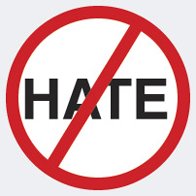So I'm addicted to Wikipedia recently, as some of you know. I love this online "dictionary" because it provides cultural references, links to information, and can be edited by anyone (with some recently tightened "security"). That's right, you and I and the kid next door can log onto this service, go to the section on Dave Matthews Band and type in "Dave sucks!" By the way, don't you dare!
So what's to keep the creeps, politicos, juveniles, and vandals from volleying slanderous trash at their victims? Well, very little, it appears. Take into account what happened to this guy.
Forgive me for editorializing because I don't do it often or well. But I have two issues I want to discuss on this topic. And for those of you too darned lazy to read about said dude above, basically he's ticked because his Wikipedia entry had implicated him in the President Kennedy assassination. He states the information is false and that there was historical text on the website that labeled him as a Nazi and other graphic adjectives. When I went to check the history on Wikipedia, as any good little faux-journalist would do, it appears the erroneous information has been deleted and due to vandalism, all entries on this thread are locked down. So I ended my junket then and there. Hey, at least I did that much, it's not like I'm working for CNN over hurr!
My first issue is: responsibility. I believe Wikipedia, as an established website and central storehouse of information, has due diligence to monitor and track posters for this very reason - vandalism and slander. However, the reader must also be cognizant of its sources. Too often on the web, folks take legitimacy at face value and do not question the source of information. Would I use this website to find out fun facts about a movie or the world's ugliest dog (may he rest in peace)? Sure. Would I use it for any kind of research for work or school? No'sir, not without additional sources to back up my biz. It comes back to educating folks on critical thinking and in a sense, stepping up to their due diligence as a researcher, student, employee, or citizen when it comes to gathering facts and data. This is a growing concern for those of us who teach high school and college students. But that's a whole other topic...
Second and last issue: opportunity. There is a remarkable opportunity in this kind of contributive web resource. No longer is the consumer bound only by what the producer decides to create and publish. The internet has broadening from a one-way model (i.e., I will shop online, read this news article, download music) to include a dynamic model where the lines of consumer and producer blur (i.e., blogs, consumer reviews on Amazon, or online parallels to the exquisite corpse). This is both exciting and a cause for hesitation. This emerging model is founded on trust; trust that people will post responsibly or that people are motivated to correct any erroneous information the vandal creates. Only the passage of time will reveal whether that trust has been misplaced or as a whole, we can overcome the mob mentality and surprise ourselves.
How can you look at this world evolving around us and not think "Wow, how lovely to be here for a while?"
- For more on this idea of trust in the masses, check out The Wisdom of Crowds
- Star Wars fans should visit Wookiepedia, LOL











